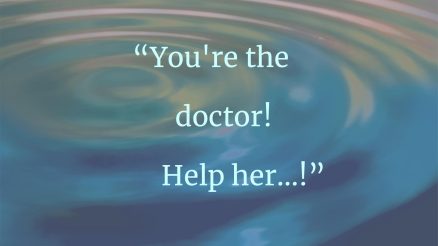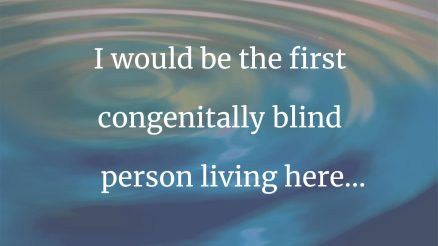- Home
- /
- Stories
Stories

Shooter
Monday, August 28, 1:15 pm
Chapel Hill, NC
“Remain inside the building until further notice.”
The security alert on my phone screen is terse. Part of me is annoyed by its tone—long on commands, short on details. Sitting safely in my car after visiting a hospice patient, twenty miles from UNC’s hospital and university in Chapel Hill, I ignore the text, chalking it up to an overreaction by the security department.
The next alert, twenty minutes later, gets my attention. There’s an “armed and dangerous” intruder on campus.

Truth in Translation
Editor’s Note: This piece tied for first place in the Pulse writing contest, “On Being Different.”
I learned from my grandfather how to lie to doctors the same way that baby birds learn chirping: by mimicry.
“All healed,” I would translate for my grandfather at appointments. “I used to smoke, but not anymore.” “The pain is very faint.”
A good apprentice, I knew that he was lying, and I translated it anyway. I was eight years old, and a fast learner.

Kids Always Know
This is a story about failures. First, it’s about my inability as a pediatric hospice physician to do the one most important job in this tender space. Second, it’s about well-meaning, loving parents’ inability to do their part in that job.
Jacob was a smart, funny, elementary-age kid, great with Legos.

Lessons From the Heart
This can’t be happening to me, I thought. Yet here I was, on a gurney being wheeled into a cath lab for an angioplasty and possible stent.
This can’t be happening, I thought again.
But it was.
A little background: I have always thought of myself as healthy.

My Mother’s Keeper
It is a mitzvah to take care of your parents: “Honor thy father and thy mother.” And caring for people comes naturally to me. I’m a physician; this is what I do.
But when my father looked to me to cure my eighty-five-year-old mother’s dementia, saying, “You’re the doctor! Help her!” I knew he was asking too much.
And yet. How could I stand idly by while my mother’s mental acuity slowly drained away?

The Black Dog
It was a particularly sunny morning, and golden light streamed through the clinic windows. Seated in my preceptor’s office, I scanned her list of patients for the day. As a first-year medical student, I was to do preliminary interviews with some, and I hoped to find a few cases that would offer a chance to test my diagnostic reasoning.
The list held a lot of the usual–medication follow-ups, annual physicals, well-child checks—plus Ernest, a seventy-eight-year-old man who’d come into the emergency room for a urinary-catheter issue. This seemed promising, so I volunteered to see him.

My Castle
Moving to an independent-living facility requires finding a balance between controlling the things that you can, and accepting help, or changes, with the things that you can’t. It also means striking a balance between being part of a more regimented community and being part of the outside world.
I’m nearly seventy, which is young for this move. But my hearing and balance are not what they were. I’ve had no family for twenty years, having outlived parents, husband and brother. Friends who have helped me in the past are aging into their own disabilities. My apartment of twenty years needed renovations that needed me gone. The timing felt right.
But my transition comes with extra challenges, because I’m congenitally and totally blind.

Letter to the Insurance Company Psychiatrist
Dear Dr. Anonymous:
Are you a Phil, Michelle or Darrell? Two years ago, you booted my seventeen-year-old son out of treatment, signing your denial letter “MD Psychiatrist.”
I understand that you were hired to qualify, or disqualify, patients based on a cost-benefit analysis. Your letter suggested that my son’s condition could be “managed at a lower level of care.”

Aftershocks
It’s Monday. I wake up at 7:15 am, go down to my apartment building’s lobby and meet with friends to work out before the rest of the day begins. We do arms, chest and back for an hour, then my friend PJ and I hit the steam room and head back to our apartments.
I call my mom for five minutes, then shower, dress and, before breakfast, knock out some flashcards on my laptop, like any self-respecting first-year medical student.
Today I’m spending a shift in the ER as part of my clinical-medicine class.
